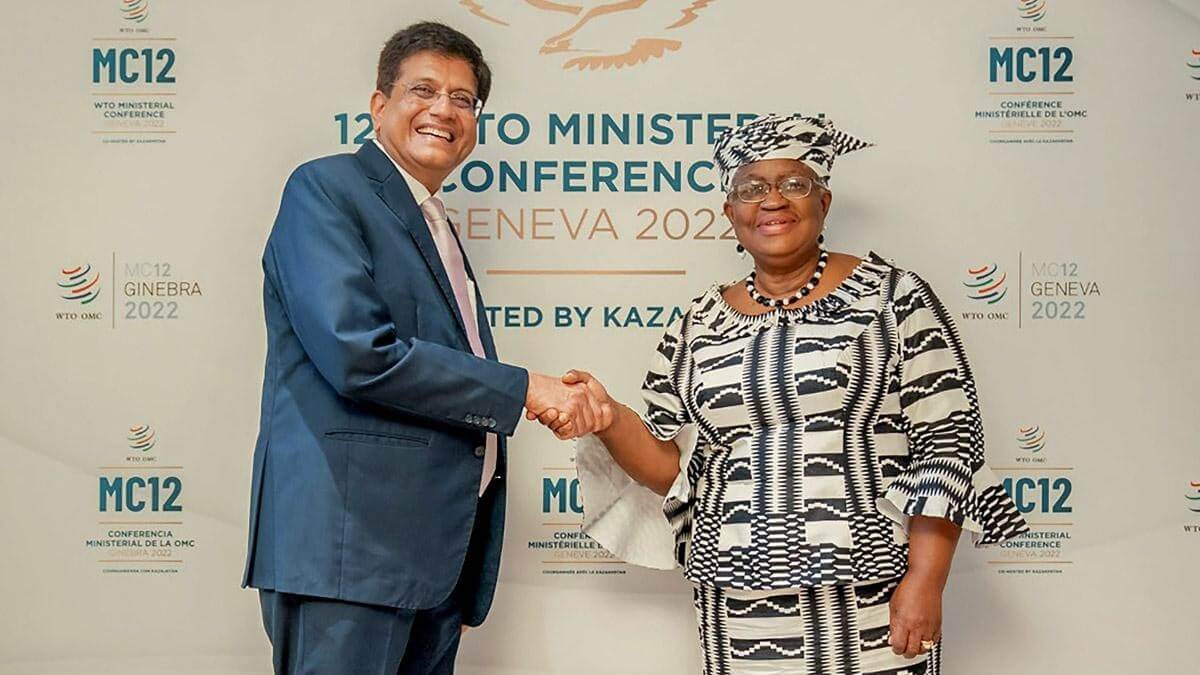India has rejected an “imbalanced” World Trade Organisation (WTO) proposal to prohibit subsidies on fisheries that overfish, saying it unfairly targets poorer fishing countries.
Speaking at the 12th Ministerial Conference of the WTO in Geneva, which began on June 12, Indian Minister of Commerce and Industry Piyush Goyal highlighted that the agreement in its current form does not provide “a level playing field to developing nations.”
Goyal argued that the proposal overlooks the concerns of traditional fishermen communities, who rely on assistance and support from the government to sustain their livelihoods. He thus stressed that the agreement would “rip away [...] future opportunities” for small-scale and traditional fishermen in these countries.
India stands with its fishermen!
— Piyush Goyal (@PiyushGoyal) June 14, 2022
At the WTO MC12, urged that the outcomes of the fisheries subsidies negotiations provide level-playing field, equity and thrust to the artisanal and small-scale fishers, who are the backbone of global fisheries.
📖 https://t.co/9PsEoG1e7d
The commerce minister highlighted that India has over nine million fishermen families that remain committed to the idea of sustainability. He remarked that traditional fishers’ lives are intertwined with the ocean and sea, wherein “responsible and sustainable fishing” are inherent to their practices. He also said that India has “modest size” fleets that largely venture within its Exclusive Economic Zone (EEZ), use passive gear, and leave behind “bare minimum footprints.”
Goyal further stressed that despite the high levels of poverty and illiteracy, Indian fishermen community practices “voluntary restraint for 61 days in a year to allow fish to grow and regenerate.”
The twelfth #WTO Ministerial Conference is all set to begin from 12th June 2022.
— Dept of Commerce, GoI (@DoC_GoI) June 11, 2022
A strong 🇮🇳 Indian delegation at the Conference is being headed by Shri @PiyushGoyal, Hon'ble Minister of Commerce and Industry.
📑 https://t.co/sMnyA1AGZU pic.twitter.com/nX7FzjlZHJ
He contrasted India’s decision to avoid “distant water fishing” with the practices of developed countries, which bring “gigantic industrial fleets” that “exploit and plunder the ocean’s wealth.” Such countries have been “indiscriminately exploiting the fisheries resources in others’ EEZ and the high seas,” he asserted.
The Union Minister also highlighted that the proposal focuses on specific fuel subsidies rather than non-specific fuel subsidies that developed countries provide their fishermen. Goyal argued that India has one of the lowest subsidies in the world, with each family receiving a meagre $15 per year. Other developed countries or advanced fishing nations such as Denmark, Sweden, and the Netherlands provide fisherman families with subsidies of up to $42,000, $65,000, and $75,000, respectively.
Just wrapped up facilitating the Fisheries Subsidies thematic session at the WTO. Critical that members now find the will and courage to conclude an agreement #WTO #MC12 pic.twitter.com/ma0xs12r2V
— Damien O'Connor (@DamienOConnorMP) June 14, 2022
He declared, “That is the extent of disparity that is sought to be institutionalized, through the current fisheries text.” Citing the example of the previous agreement on agriculture, he warned against the adoption of similar “asymmetries and discrimination.”
In this regard, he said, “It is necessary to open the eyes of this august assembly to the deep concerns of the low-income countries and the developing world and the developed nations to the huge disparity sought to be foisted on us once again like it was done in agriculture 35 years ago.”
Goyal highlighted that the current text unfairly targets developing nations and their millions of fishermen by depriving them of much needed subsidies to maintain their livelihoods. He added, “Such subsidies in fact contribute to the reduction of vulnerabilities of the poor fishing communities who work in extremely harsh environment.”
New global rules being negotiated at the WTO to curb harmful #FisheriesSubsidies, once agreed, will require governments to align their policies. The WTO Fisheries Funding Mechanism, introduced at #MC12 today, will support this implementation. Find out more here: pic.twitter.com/PDx0W28HBa
— WTO (@wto) June 14, 2022
To this end, he reiterated India’s stand that such advancing fishing nations should “own the responsibility for the damage they have caused to the global fisheries wealth” and any agreement in the WTO on fisheries subsidies should be brought under a “tougher discipline regime.”
He said that the principles of the deal should focus on “common but differentiated responsibility” and “polluter pays principle,” through which Distant Water Fishing Nations, which conduct large-scale fishing activities outside their EEZs, should be prohibited from providing subsidies for 25 years. He stressed this would allow developing countries and least developed nations to take over these capacities and “give them a chance to grow.”
Goyal also called for a 25-year grace period on subsidies for low-income and resource-poor countries, particularly those that are not involved in long distance fishing. He opined that this would allow them to improve their resource management and fleet optimisation, and declared that India would likely reject any agreement without such a clause.
Today is World Oceans Day! @WTO stands for the sustainability of our oceans. Let’s try and get Fisheries Subsidies done! 21 years is too long. Go for it members! pic.twitter.com/Eehhzp23EV
— Ngozi Okonjo-Iweala (@NOIweala) June 8, 2022
Negotiations on the fisheries subsidies deal have been going on for over 20 years now. WTO chief Ngozi Okonjo-Iweala aims to conclude the deal in this week’s conference. In fact, Colombia’s WTO ambassador said that the agreement has “never been so close to concluding.”
However, given that agreements in the WTO require unanimity, India’s opposition could prove fatal for the deal. As a result, WTO members are considering whether the restriction on subsidies should be limited to nations with more than 0.7-0.8% of the global catch.

